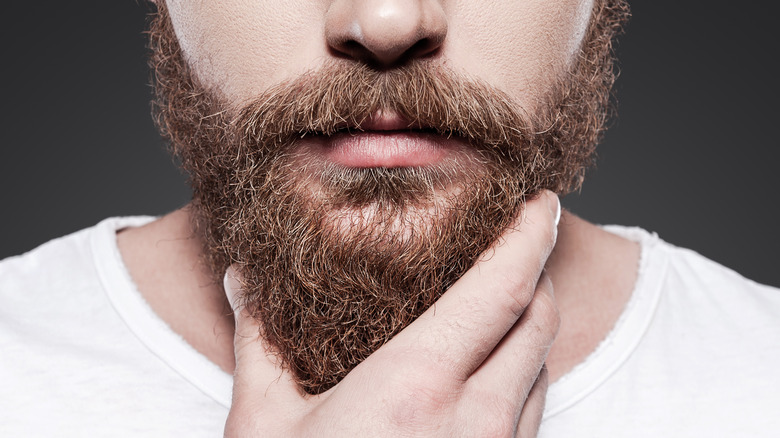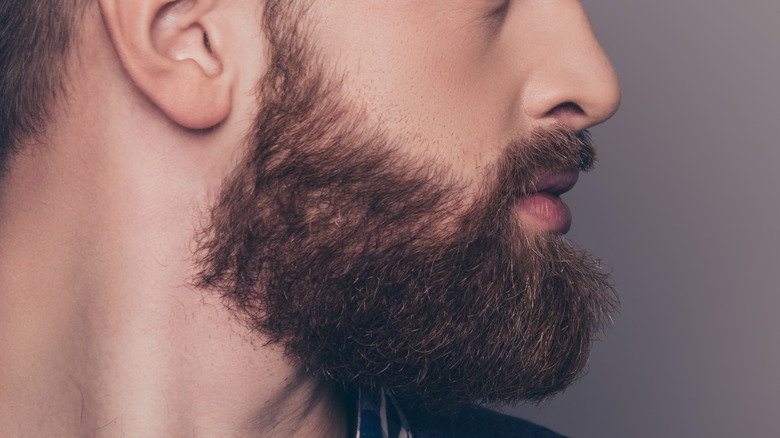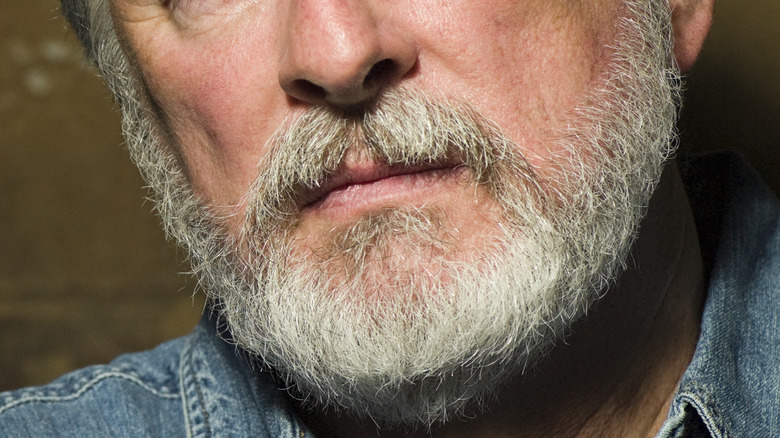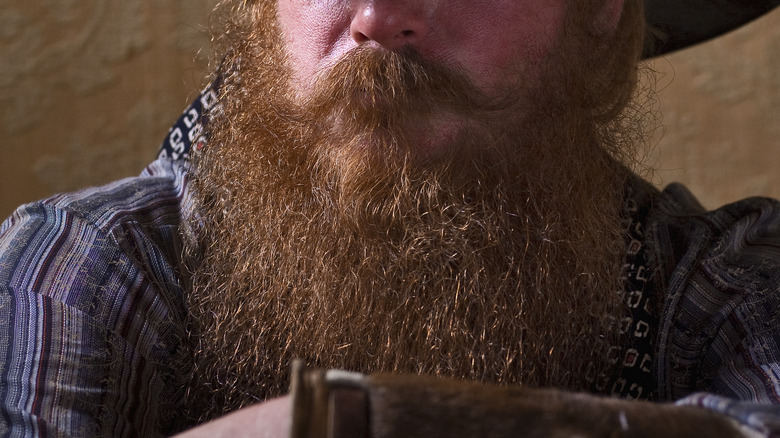What Is Pogonophobia, The Fear Of Beards?
Human phobia, defined by Johns Hopkins Medicine as an "an uncontrollable, irrational, and persistent fear of a specific object, situation, or activity," takes many forms. Some, like a fear of heights (acrophobia) or a fear of spiders (arachnophobia) are familiar, while others, like alektorophobia (a fear of chickens and hens), don't get quite so much press. Don't tell Santa Clause, but another uncommon phobia is called pogonophobia, described by Fear Of as the "the irrational, persistent and often unwarranted fear" — sometimes referred to as an "extreme dislike" — of men with beards. Pogon being the Greek word for beard.
Yes, that's right, fear of beards is a real human phobia defined by science, and it's just one of many possible phobias observed in humans. That full list even includes phobophobia, or a fear of phobias. And what might cause such an extreme aversion to full and bushy facial hair? The things that lead a person to develop a phobia — pogonophobia or otherwise — are not well understood, though phobias sometimes run in families, so genetics may play a part. As far as pogonophobia, a few leading theories as to what might cause such a fearful reaction to bearded men all break down to our unconscious assumption as to what bearded men might be like.
Brain changes can sometimes lead to phobias
In addition to a possible genetic factor, phobias can be caused by a negative experience with a specific thing, something stemming from a person's environment, and even sometimes a traumatic brain injury, The Washington Post reports. At its core level, a phobia is an anxiety disorder that causes a person to have a persistent, excessive, and unrealistic fear. Naturally, if a person is afraid of something, they try to avoid it, so with beards periodically popular in men's fashion, not to mention a certain baseline of men who always wear beards, life with pogonophobia can be particularly tricky to navigate.
Those with pogonophobia, who are most often women, report an inability to concentrate around men with beards, which can cause significant difficulty as they go about their daily lives. Other signs and symptoms of pogonophobia include anxiety, nausea, increased heart rate, shortness of breath, and in the most extreme cases, a panic attack. Treatments for pogonophobia, among other phobias, include talk therapy and cognitive behavioral therapy, or CBT. Others may turn to psychotherapy, hypnotherapy, or something called neuro-linguistic programming therapy, or NLP. An estimated 19 million Americans have one or more phobias. The late British Prime Minister Margaret Thatcher reportedly lived with pogonophobia, according to The Telegraph.
Phobias can also be caused by trauma
Certain phobias, such as a fear of flying or water, also called aerophobia and aquaphobia, are somewhat easy to understand. Those who don't live with the phobia, though, might find pogonophobia somewhat more perplexing — what might possibly cause a fear of beards? After all, there are plenty of positive depictions of men with beards, including the aforementioned Santa Clause. The truth of the matter is, though, that a specific instance of extreme trauma involving a man with a beard might bring on the phobia. And along with friendly and welcoming bearded imagery, beards are also sometimes associated with distrust, lack of hygiene, and even poverty.
What's also notable is discomfort with bearded men — whether full-fledged pogonophobia or a simple preference for clean-shaven men — has kept a bearded American man out of the White House since the 19th century, and though pogonophobia most often affects women, it's been reportedly found in all genders, races, and ages. In addition to the aforementioned therapies, those with pogonophobia may also take anti-anxiety medication, which won't work to relieve the phobia itself but will help someone who lives with the phobia deal with the anxiety-related symptoms so that issues surrounding the phobia can then be addressed.
Beards are also a sign of aggression
What might also be the root cause of pogonophobia for some who live with it is that some evolutionary theorists think that men evolved to grow beards to prove dominance, show their masculinity, and as a sign of aggression, as Psychology Today explains. The outlet mentions a study published in Psychological Science by researchers in Australia, who showed hundreds of volunteers photos of bearded men. Some looked happy or angry, and later, they were pictured looking sad. They then compared those reactions to the same men making the same faces while clean-shaven.
The results of that poll showed that perceptions of beards aren't all bad. While most people thought men with beards looked more threatening when they were angry, they also said they looked friendlier and more helpful than clean-shaven men. Still, pictures of bearded men making angry faces used in the study were said to look angrier than non-bearded men making angry faces, according to the results of the polls, and it's unlikely that most of those study participants even had pogonophobia.



